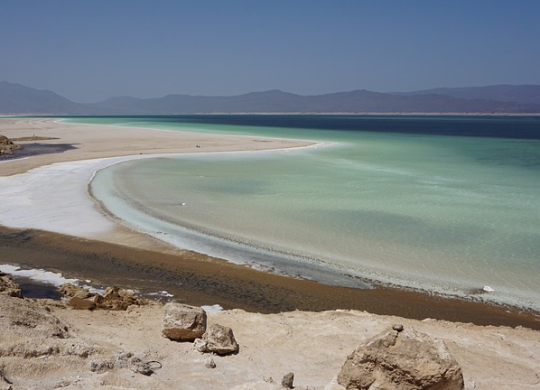How to come and get a job in Djibouti. Types of visas and obtaining a work visa

Djibouti's economy is based on its strategic geographic location. With limited natural resources, the main industries are related to the delivery and refueling of the transport entering the Red Sea. Regional partners play a key role in exports, as goods are then often shipped inland to Ethiopia.
Djibouti has faced social and political factors that have previously hindered development, but several industries are showing growth and offering good employment opportunities. The economy is driven by the Red Sea, and jobs for beginners and seniors are often related to exports and transportation. Taxes are fixed and lower than in other countries in the region. Health and education systems are underdeveloped, so access to private services is necessary. Security can be difficult, with high crime rates in cities, and it is important to follow employer advice when applying for jobs.
How do I come and get a job in Djibouti?
Emigrants who want to find work in Djibouti usually have to find a job before they arrive. When they arrive in the country, they can get an ID card by providing proof of a job offer, a copy of their passport, and four photographs. Individuals who do not have a job offer but want to start a business in the country must provide four passport-size photos, a copy of their passport, and information about their investments, as well as proof of funds.
How much each person has to pay for a visa and ID depends on the country from which he or she is coming. For example, those coming from other parts of Africa pay $196, while U.S. citizens pay $280. Since there is no fixed minimum wage in Djibouti, all wage agreements are made between the employer and his employee. Other requirements for those seeking work permits include proof of their yellow fever vaccination.
Filing and applying for a work visa requires painstakingly sorting out the nuances and specifics and being prepared for additional requirements as you go through the procedures. The experts at our website Visit World can help you with these nuances.
Types of visas and getting a work visa
Since there are few employment opportunities in Djibouti, expatriates usually get a job before the visa application process begins. Applicants should apply for a visa well in advance of their scheduled departure date, as processing can take several weeks depending on the country of residence.
Foreign nationals have several options for obtaining a visa to enter Djibouti, including business visas and tourist e-visas. Foreign workers will need three documents to live and work in Djibouti:
• Entry Visa.
• Residence permit.
• Work permit.
The residence permit acts as an identification card for foreign nationals. Foreign workers will need to obtain an entry visa before traveling to Djibouti. Visa requirements vary, but applicants will need a passport valid for at least six months after the scheduled departure date. The passport must also have at least two blank pages, and applicants must be vaccinated against yellow fever.
In addition to the entry visa, your employees will need to obtain a residence and work permit. The documents required for these permits include:
• copy of an employment contract with a company based in Djibouti;
• valid passport;
• long-term visa;
• 4 passport photos;
• copy of the license of the free zone company;
• a written request with details of the position and employer;
Job prospects in Djibouti
It is quite possible to find a job in Djibouti if you know English well, as a teacher or a translator. To be invited for a job, it is important to meet the criteria; qualifications and a lot of work experience. Then a decent job could be in logistics, transportation services, and maintenance.
Taxation in Djibouti
Taxes in Djibouti are set at fixed rates. About 15.7% of an employee's salary goes to their social security contributions, which are automatically deducted from their wages. Employees are expected to pay another 4% voluntarily. Corporate tax is a flat rate of 25% or 1% of the company's turnover, whichever is higher. In addition, there is a local garbage tax of 4.5% of an employee's salary, as well as a 7% VAT on some goods sold in the country.
Recommended articles
3 min
Treatment
Healthcare system in Australia: insurance, medical services and other important details
Undoubtedly, Australia is one of the key players in the medical tourism industry. The country is famous for its developed healthcare infrastructure, modern medical facilities and qualified specialists. Learn more about the peculiarities of the medical system in Australia
22 Jul. 2024
More details2 min
Employment
Employment in Brazil: how to find a job as an expat, the labor market and a work visa
In recent years, Brazil has become a popular destination for foreign residents, attracted by the country's vibrant culture, natural beauty, and work-life opportunities. Find out more about visas and residence permits for work in Brazil, the list of documents, salary level in Brazil for an expatriate and other important details
22 Apr. 2024
More details5 min
Treatment
5 min
Residence permit
All materials and articles are owned by VisitWorld.Today and are protected by international intellectual property regulations. When using materials, approval from VisitWorld.Today is required.